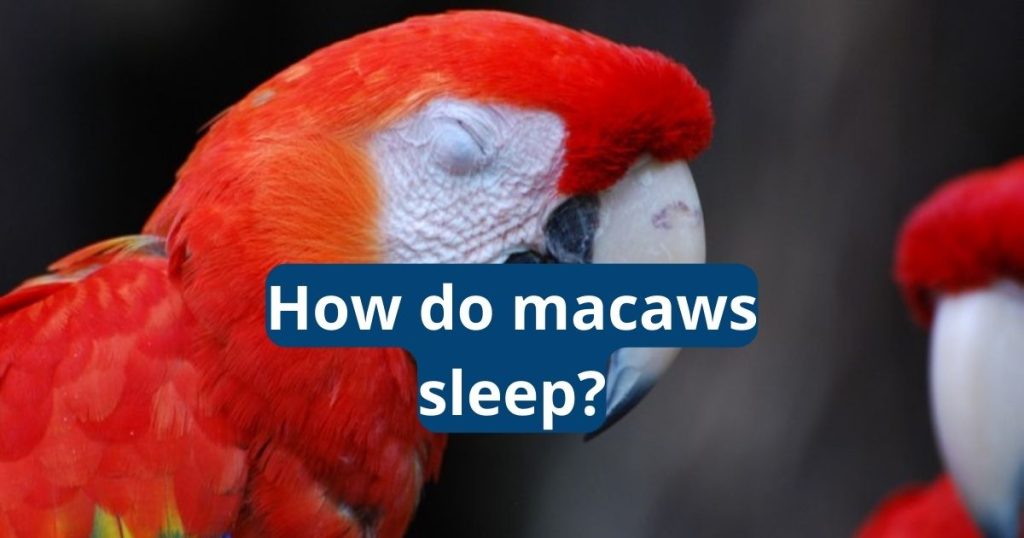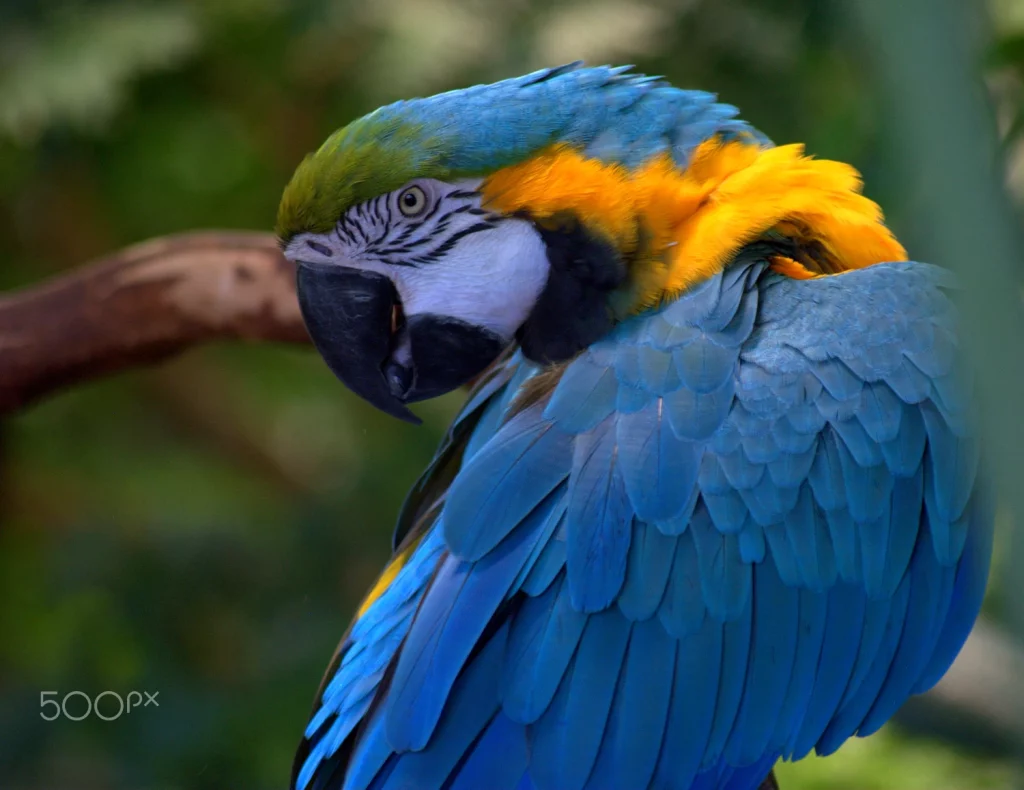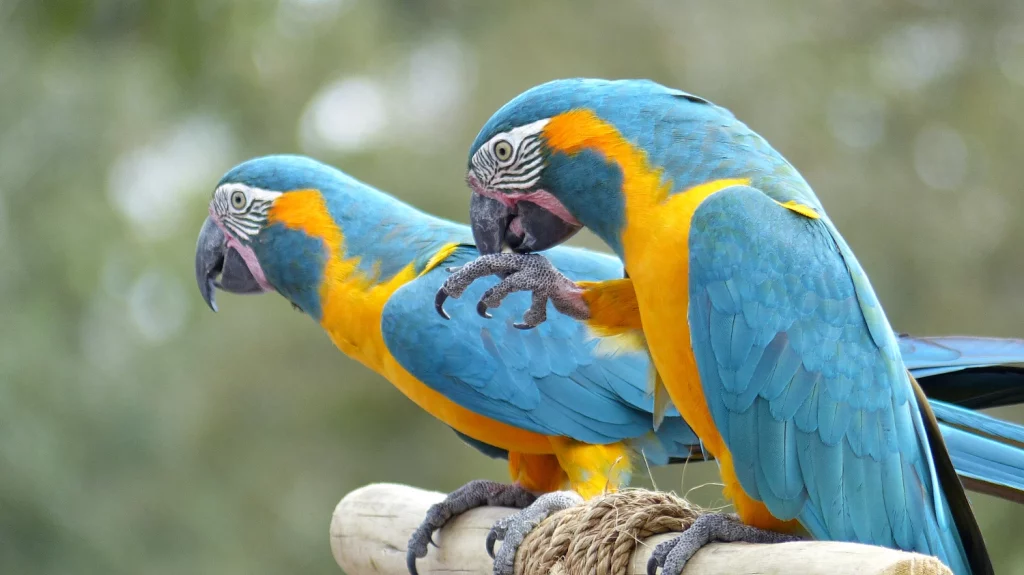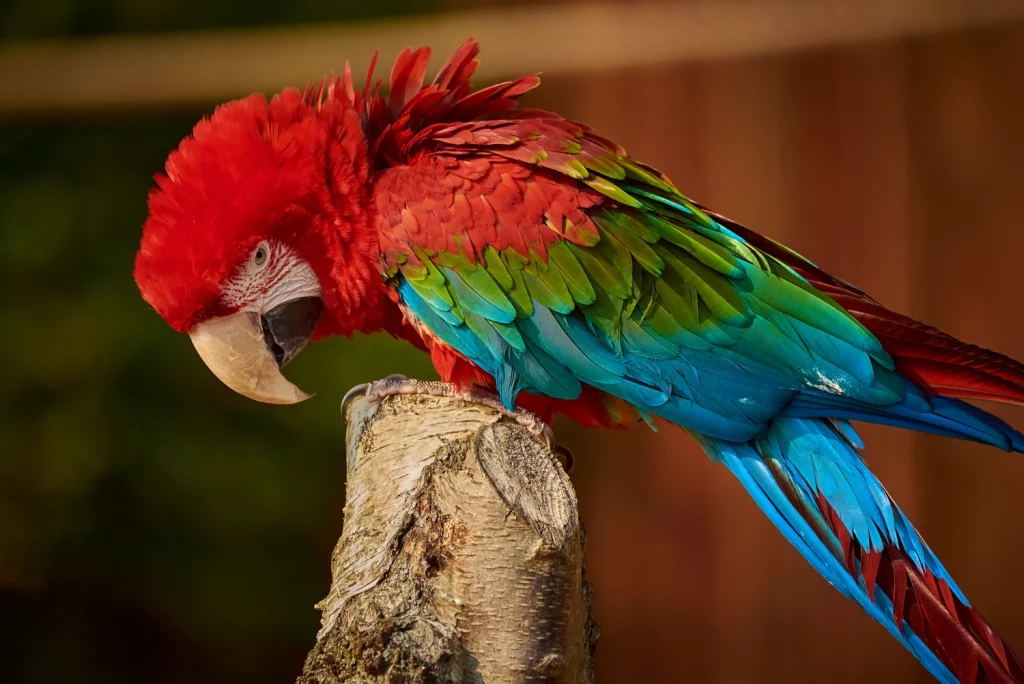How Do Macaws Sleep?

Macaws are a species of bird that is diurnal and does not sleep at night. They wake up early and live in family groups or large flocks. They use loud calls and squawks to communicate with other birds in their flock. They also enjoy exploring new objects and chewing on them. These activities help them stay alert to any potential predators.
They scream
In the wild, macaws travel long distances to find a variety of seeds, nuts, fruits, and insects for their food. They may also use their voices to call for their flock or when they are excited or injured. In captivity, they require social interaction, exercise, toys and more to keep them happy and healthy.
In general, a well-socialized macaw will be much quieter than an un-socialized bird. Choose a breeder that raises birds in an environment that will help the bird to become socialized. In addition, choose a large cage that will allow the bird to spread its wings fully.
Macaws often squabble with other parrots, so if you are planning on adopting one of these magnificent creatures, make sure you can tolerate some level of vocalization. If you cannot, you may want to consider a different species of bird. Also, make sure that you have a high-quality bird cage cover with odor protection and the ability to absorb seed dust and dander.

They squabble
Macaws live in pairs, and even when they aren’t breeding, they reinforce their bond by preening each other’s feathers and roosting together. Sometimes, they fight, but the birds rarely injure one another. Once the fighting stops, they settle down and prepare to sleep through the night.
Keeping your pet macaw in a quiet place can help them fall asleep more easily. This is important because if your parrot doesn’t get enough rest, it will become irritable and may develop health problems.
It is generally recommended that you don’t house a pair of Macaws in the same cage, especially if they are both the same sex. They will likely squabble, and you will need to provide them with a large separate cage that can accommodate both of them. In addition, you will need to have a good understanding of the behavior and temperament of Macaws in order to properly care for them. This is a big responsibility and not for everyone.

They roost
Macaws in the wild roost near their food. The roosts may be in the same place where they eat or at a different place, depending on the season and time of day. They can also roost at clay licks, where they gather to eat mineral and salt bearing clay.
They fly high over the canopy and can often be seen in pairs or small family groups, with bonded birds flying close together, their wings almost touching. Flocks can also form in the morning and afternoon when they travel to and from their feeding grounds.
Pairs are monogamous and they usually nest in tree cavities. They defend their eggs and chicks aggressively. When not hunting for food, they spend a lot of their time playing with objects they find. They like to examine them from all angles and move them around, using their feet and tongues to test them out. They are renowned chewers and can do impressive damage with their curved beaks.

They sleep
Macaws require a good amount of sleep, and they should be able to get it in a quiet environment. They also need to be able to have access to sunlight, which can help them keep their hormones in balance. If a bird isn’t getting enough sleep, it will become irritable and hard to handle.
In the wild, macaws are diurnal birds and go to sleep when it gets dark and wake up before sunrise. They sleep in nesting areas, such as tree cavities, and roost in flocks all night. The birds eat seeds and fruits during the day and are concerned with finding food.
Most pet owners have hectic work and social schedules, so they often stay up past their birds’ bedtimes. In addition, artificial light can confuse the bird’s natural sleep cycles and cause a deficiency of vitamin D3 and calcium. As a result, it’s important to provide your pet with 12 hours of darkness and sunlight each day.





